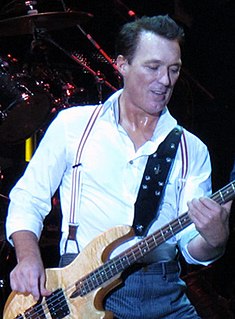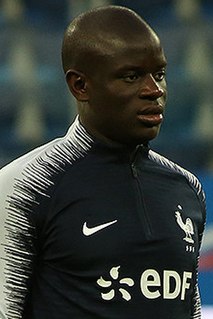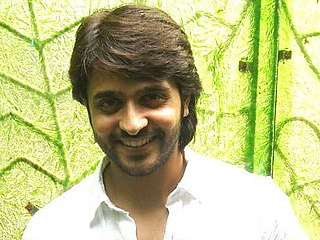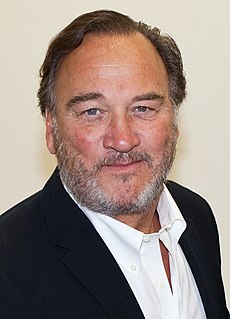A Quote by Martin Kemp
With shows like 'Made In Chelsea,' we all know what they're doing is rehearsed. So why not have an audience phone-in element? They can make the decision on what they're going to argue about.
Related Quotes
There is a documentary element in my films, a very strong documentary element, but by documentary element, I mean an element that's out of control, that's not controlled by me. And that element is the words, the language that people use, what they say in an interview. They're not written, not rehearsed. It's spontaneous, extemporaneous material. People
The best thing about writing fiction is that moment where the story catches fire and comes to life on the page, and suddenly it all makes sense and you know what it's about and why you're doing it and what these people are saying and doing, and you get to feel like both the creator and the audience. Everything is suddenly both obvious and surprising ("but of course that's why he was doing that, and that means that...") and it's magic and wonderful and strange.
Why prove to a man he is wrong? Is that going to make him like you? Why not let him save face? He didn't ask for your opinion. He didn't want it. Why argue with him? You can't win an argument, because if you lose, you lose it; and if you win it, you lose it. Why? You will feel fine. But what about him? You have made him feel inferior, you hurt his pride, insult his intelligence, his judgment, and his self-respect, and he'll resent your triumph. That will make him strike back, but it will never make him want to change his mind. A man convinced against his will is of the same opinion still.
Even then, I didn't quite know what to make of it [captain Kirk death]. I was mystified by why I was doing it, why I was so driven to do it, and why it was affecting me like it was. I still don't know what it means. It's a strange singular experience. I don't even know anyone to talk to about it because I don't know anyone who's had that experience.
Nerves are always a big problem for me, which is why I loved doing American sitcoms. Because you know when you do the take in front of the audience that you're going to do it again afterwards. A minute after you finish, you just go and do it again. So, there's that sort of safety net. And then if you made a little mistake or two, they'll go pick it up, so there's nothing to worry about.




































